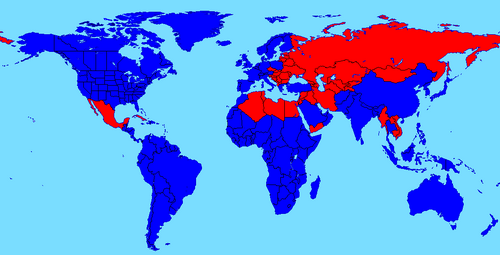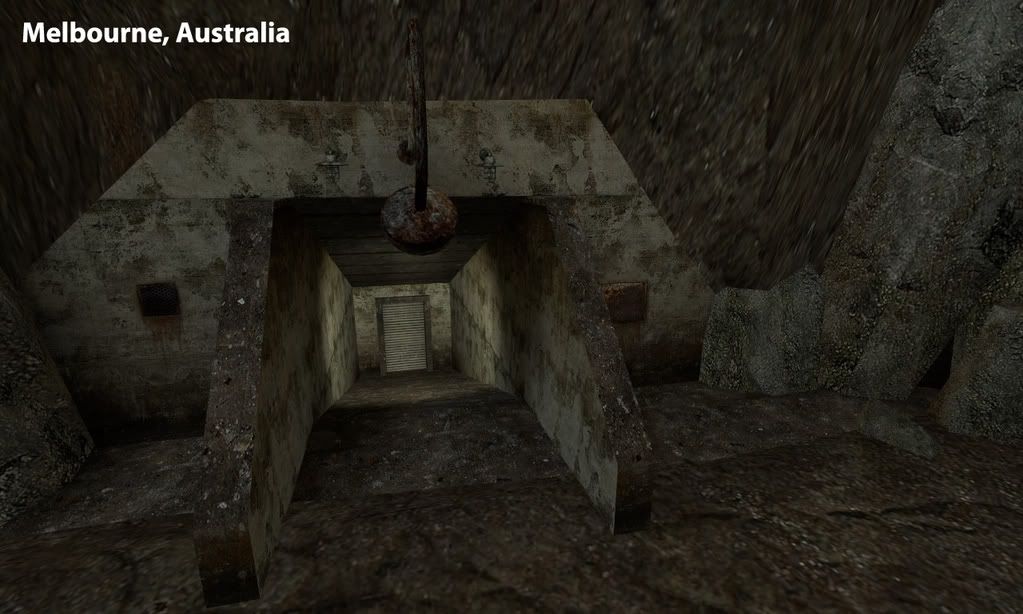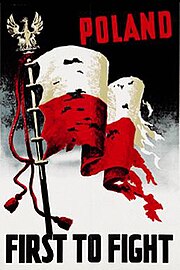Cassidy
Arcane
Now with an Index(not considering the first try to which the save game was lost)

1938-1939

1940
----- WHAT IF SCENARIO ----

What if Poland did not intervene, the aliens send no more waves and if no alliance ever happens in the world?
----- WHAT IF SCENARIO ENDS ----

Winter 1940 and 1941: Year of ITZ

1942: Year of the begginning of the Amerikwan Liberation

1943: Liberation of Post-ITZ Australia and Japan

1944: A year to live in Infamy.

1945: The Battle of Britain: Dawn of the Turbojet Aviation.

January - July 1946: Liberation of Africa and D-Day in Europe

August - December 1946: Time of legends, time of trenches.

1947: The End of Battle for Africa and the beginning of the Asian D-Day
--------------
Once there was a time when Internet polls about which was the best RPG of 2007 wouldn't have "The Witcher" as the most voted choice, a time when the closest thing to a network was the exchange of punchcards between census tabulating machines. A time of...
Darkness.
But such was also a time for great men, generals and soldiers ready to die for their beloved nation, to surface, to fight for their land, to be the first to fight against the awakening red and dark menaces.

Could they be the first to victory as well? This is a question which answer will soon be unfolded.
Let's Play Hearts of Iron 2: First to Fight
In 2150, a Polish scientist with German relatives called JarlFrank invented a time machine, and soon many ideas came to his mind on how to reshape the past of his nation to something he believed to be better, and this of course, involved him to become a WorldDictator in the past. After meeting the greatest generals of his era, aware of modern tactics, of the improvement of many of the concepts that began more than a hundred of years ago, this scientist realized how any sending of technology back in time could be a severe threat, to the point of making a paradox that would void his very existence. His ambitions to change history however were much greater than his fear for the risks, and thus he attempted for months to convince the best general of their time, to return in time with nothing but his uniform and assume the daunting task of not only leading Poland against the Blitzkrieg but towards the footsteps of a great empire. There was only one problem however, for the time machine wasn't very accurate, and thus, the general could be sent to any date from 1936 to 1939, and thus, luck or bad luck would in many ways determine this expedition.

The general stepped in the time machine as the scientist prepared it, to vanish into the Annals of History(no pun intended). He was never heard of again.
If he had the luck to arrive in 1936, and to prove his wisdom in grand strategy, he would have many opportunities to prepare for an enemy which exact plans and strategy, differently from those who belonged to this time, he already knew about. Even though, the challenge would not be small, and many difficulties would have to be overcome.
If he had the misfortune of arriving in 1938, time to prepare and build-up would be severely limited, and thus every choice would have much more significant consequences, meaning that a mistake could be fatal, however such wasn't the worst case scenario.
To arrive only a few months, or even a few days before Fall Weiss during 1939 would lead the general to face an impossible mission, to hold Poland with only the available assets of such time, without the strategic insight of a man who knew how this history would end.
Thus the question remains: in which year did the general arrive back in time?
It is up for you to decide.

1938-1939
- September 1st, 1938 - September 8th, 1939: The preparations and the dawn of war
- September 8th - October 1st: Battle for East Prussia.
- October 1st - October 13th: Battle of Radom begins.
- October 13th - October 22nd: Battle of Radom proceeds, liberation of Warsaw.
- October 26th - November 10th: Winter War Part 1: Radom, Frozen riverbed of Aryan Blood
- November 10th - December 2nd: Winter War Part 2: Kill-elce
- December to January: Winter War Part 3: The Sitzkrieg and the Fallen Dragon

1940
- March in 1940, Our Finest Year
- April: The Month Poland Stood Still
- NEVAR FORGET THE MAY DAY OF 1940
- Never Surrender to the Ominous times of May
- The Last 30 Days of the Second World War
- 1st of July - 11th of November: The Illusion of Peace
----- WHAT IF SCENARIO ----

What if Poland did not intervene, the aliens send no more waves and if no alliance ever happens in the world?
----- WHAT IF SCENARIO ENDS ----

Winter 1940 and 1941: Year of ITZ
- Strange Bedfellows through the Shivering Dead Snow of 1940
- January 1941: The Dawn of a new Civilization(Part 1)
- January 1941: The Dawn of a new Civilization(Part 2)
- January 1941: The Dawn of a new Civilization(Part 3)
- February 1941: Last Stand of Humanity (Part 1)
- February 1941: Last Stand of Humanity (Part 2)
- March 1941: Is This the End? Part 1
- April 1941: Is This the End? Part 2: The Last Stand of the Polish Army
- May 1941: Soldiers in Exile
- Late May 1941 to early June: Dunkirk was organized and safe next to this
- June 1941: To defend the Last Hope of Humanity
- July 1941: The last hope is here
- Early August 1941: A New World Power Arises
- Mid August 1941: First Victory
- Late August 1941: A turning point in the war?
- September 1941: Turning Point
- October 1941: A Narrow Window of Opportunity to Liberate South America
- November 1941: The Sun may yet rise in Britain

1942: Year of the begginning of the Amerikwan Liberation
- December 1941 to mid February 1942: The Beggining of a new year, and of the Final Liberation of South America.
- February to October 1942: Victory in South America Day: Delayed by Winter, achieved by courage.
- The Christmas of 1942 in Kwanzania.

1943: Liberation of Post-ITZ Australia and Japan
- January-March 1943: Kwanzania Reborn.
- Epilogue(Invalid, kept for curiousity sake only)
- March-June 1943: Rise and fall of Communism
- June - September 1943 - Operation Cleveland: Liberation of Australia
- September - December 1943: Operation Desu and Operation Additional Pylons

1944: A year to live in Infamy.
- January - February 1944: Major Air Battles in Central America
- March - April 1944: Managua, the American Passchendaele(Part 1).
- April - May 1944: Managua, the American Passchendaele(Part2).
- A date which will live in infamy
- July 1944: Operation Downfall Begins
- Late July to Early August 1944: Unsung Heroes, and Decline of Japan
- August 4 to August 14, 1944: Flag of our kingcomrades
- August 14 to August 24, 1944: The Fading Sun
- September 1944: The Sun has faded
- October-November 1944: End of the Sosnkowski Era? First Elections of the UDMS-KKK.

1945: The Battle of Britain: Dawn of the Turbojet Aviation.
- December 1944 - March 1945: The Battle of Britain
- April - September 1945: Preparing for D-Day and a Chilling Revelation
- September - December 1945: Ultramarines in Africa: the day the greatest Campaign ever fought would begin.

January - July 1946: Liberation of Africa and D-Day in Europe
- January 1st - 12th: AfrikaKKKorps, Forward! The Battle for West Africa begins
- January - February 1946: The struggle for West Africa and Morocco
- March - April 11th 1946: Race for North Africa: Battle for the Atlas Mountains
- April 12th - April 30th 1946: The Struggle for Algeria
- May 1496: Road to Gibraltar
- 4th of June 1946: D-Day
- 5th to 8th of June 1946: Saving Private kingcomrade
- 8th to 12th of June 1946: Through the gates of hell: The Battle for Ghent
- 12th to 13th of June 1946: The End of D-Day
- 13th to 16th of June 1946: War against the Ultimate DOOM Expansion Set for Europe; Part 1: The struggle for Caen
- 16th to 19th of June 1946: Battle of Argentan Part1
- 19th to 21st of June 1946: Ghentting out of there
- 21st to 27th of June 1946: The burden of defending Normandy
- 27th to 30th of June 1496: Final Liberation of Spain
- 1st to 9th of July 1946: Requiem of Finland
- 9th to 12th of July 1946: Requiem for Normandy
- 12th to 15th July 1946: ¡No Pasarán los alienígenas y los fascistas!

August - December 1946: Time of legends, time of trenches.
- 15th July to 9th August 1946: Neverending Stalemate
- Epilogue(no longer valid, left for curiousity only)
- 9th to 19th August 1946: To establish a line in Aquitaine.
- 19th August to 4th September 1946: Eternal War
- 5th to 10th September 1946: Battle of Perpignan and the First Steps for Asian D-Day.
- 11th to 20th September 1946: The Battle of Toulouse
- 21st September to 1st October 1946: Will the Polish Flag once again fly over the Kremlin?
- 1st to 12th October 1946: The Eurasian Stalemate begins
- 13th to 18th October 1946: Evacuation of Russia and a bold move in North Africa.
- 19th to 25th October 1946: Road to Suez
- 25th October to 1st November 1946: The Battle of the Pyrenees
- 2nd to 12th November 1946: The line is drawn in the sand
- 13th November 1946 to 1st January 1497: And thus began the year of 1947

1947: The End of Battle for Africa and the beginning of the Asian D-Day
- January 1947: The Final solution to the Xenos question in Africa begins.
- February to March 1497: The Not at All Inane Battle for the Holy Site of the Religion of Peace.
- April 1947: If the xenos will not come to Muhammad, then Muhammad must go to the xenos.
--------------
Once there was a time when Internet polls about which was the best RPG of 2007 wouldn't have "The Witcher" as the most voted choice, a time when the closest thing to a network was the exchange of punchcards between census tabulating machines. A time of...
Darkness.
But such was also a time for great men, generals and soldiers ready to die for their beloved nation, to surface, to fight for their land, to be the first to fight against the awakening red and dark menaces.

Could they be the first to victory as well? This is a question which answer will soon be unfolded.
Let's Play Hearts of Iron 2: First to Fight
In 2150, a Polish scientist with German relatives called JarlFrank invented a time machine, and soon many ideas came to his mind on how to reshape the past of his nation to something he believed to be better, and this of course, involved him to become a WorldDictator in the past. After meeting the greatest generals of his era, aware of modern tactics, of the improvement of many of the concepts that began more than a hundred of years ago, this scientist realized how any sending of technology back in time could be a severe threat, to the point of making a paradox that would void his very existence. His ambitions to change history however were much greater than his fear for the risks, and thus he attempted for months to convince the best general of their time, to return in time with nothing but his uniform and assume the daunting task of not only leading Poland against the Blitzkrieg but towards the footsteps of a great empire. There was only one problem however, for the time machine wasn't very accurate, and thus, the general could be sent to any date from 1936 to 1939, and thus, luck or bad luck would in many ways determine this expedition.
The general stepped in the time machine as the scientist prepared it, to vanish into the Annals of History(no pun intended). He was never heard of again.
If he had the luck to arrive in 1936, and to prove his wisdom in grand strategy, he would have many opportunities to prepare for an enemy which exact plans and strategy, differently from those who belonged to this time, he already knew about. Even though, the challenge would not be small, and many difficulties would have to be overcome.
If he had the misfortune of arriving in 1938, time to prepare and build-up would be severely limited, and thus every choice would have much more significant consequences, meaning that a mistake could be fatal, however such wasn't the worst case scenario.
To arrive only a few months, or even a few days before Fall Weiss during 1939 would lead the general to face an impossible mission, to hold Poland with only the available assets of such time, without the strategic insight of a man who knew how this history would end.
Thus the question remains: in which year did the general arrive back in time?
It is up for you to decide.






















